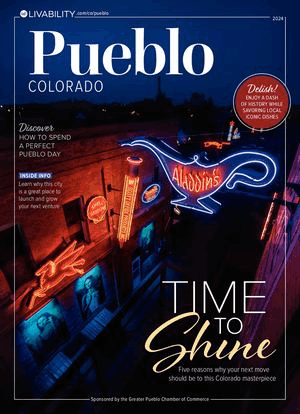Population & Demographics: Understanding Our Diverse Community
A Diverse, Tight-Knit Community
Pueblo offers physicians a uniquely diverse patient population within a manageable metropolitan area.
As you practice medicine here, you'll experience the satisfaction of serving a community where
cultural diversity enriches both professional and personal interactions. With a Pueblo County population of
approximately 170,000 and the city proper at around 112,000 residents, you'll find the perfect balance between a
substantial patient base and meaningful community connections.
- Pueblo MSA encompasses Pueblo County with steady, sustainable growth
- Efficient population density without overwhelming urban volume
- Physicians are known and appreciated, not anonymous providers
- Small enough to build a personal reputation, large enough to support specialized care
Rich Cultural Tapestry
Pueblo’s population reflects its history as a melting pot of cultures. This heritage remains visible today in
neighborhoods, celebrations, and daily life—offering physicians an engaging cultural and intellectual environment.
- Hispanic/Latino residents: ~50% of population, creating a bicultural community
- Italian, Slovenian, German, and Eastern European roots reflected in traditions and cuisine
- Opportunities to build cultural competencies through diverse patient care
- Multicultural neighborhoods with distinct character and community identity
- Annual festivals including the Chile & Frijoles Festival, Italian Festival, and Greek Festival
Approachable Demographics
Pueblo presents authentic demographic diversity across age, income, and social background—offering both
rewarding clinical challenges and the opportunity to make a significant impact in community health.
- Balanced age mix: Young families and retirees in strong numbers
- Median age: 38.3 years, slightly above state average
- Growing professional class due to economic diversification
- Veteran population: ~10% of residents, reflecting Pueblo’s military heritage
- Median household income: ~$47,000 across diverse working and professional sectors
A Community of Skilled Workers and Professionals
Pueblo's workforce reflects its transition from industrial to diversified economy. While maintaining
working-class values, the city has seen expansion in healthcare, education, and advanced manufacturing.
- Major employers: Parkview Medical Center, Centura Health, CSU-Pueblo, Vestas Wind Systems
- Growing healthcare sector offering career paths at multiple levels
- Higher ed institutions: CSU-Pueblo and Pueblo Community College as regional anchors
- Manufacturing renaissance: Creating engineering and management roles
- Remote work trends: Attracting professionals seeking lifestyle and cost advantages
Educational Attainment and Values
Education is an increasing priority in Pueblo, supported by accessible institutions and a community that values
both practical skills and academic achievement.
- 23% of residents hold a bachelor’s degree or higher
- More young professionals choosing Pueblo for affordability and lifestyle
- Community support for education and healthcare workforce initiatives
- Balanced emphasis on craftsmanship and formal education
The Character of Pueblo Residents
Pueblo residents are known for their genuine, welcoming nature. As a physician, you'll find patients
who value straightforward communication and build multi-generational loyalty with trusted providers.
- Unpretentious friendliness that embraces newcomers
- Strong local identity distinct from other Colorado cities
- Resilient community spirit forged through history
- High levels of civic engagement and volunteerism
- Enduring patient-physician relationships built on trust and consistency
Community Connections
In Pueblo, you'll practice in a setting where social connection still matters. Physicians are
visible community figures and appreciated for their contributions.
- Neighborhood associations that support local identity and cohesion
- Vibrant religious communities across many faiths
- Robust service organizations like Rotary, Kiwanis, Lions Club
- Busy local events calendar promoting ongoing community engagement
- Healthcare providers deeply connected to the residents they serve
As you establish your practice in Pueblo, you’ll gain deep professional satisfaction knowing your
work is both seen and valued. You’ll experience a level of purpose and visibility
often missing in larger cities.
